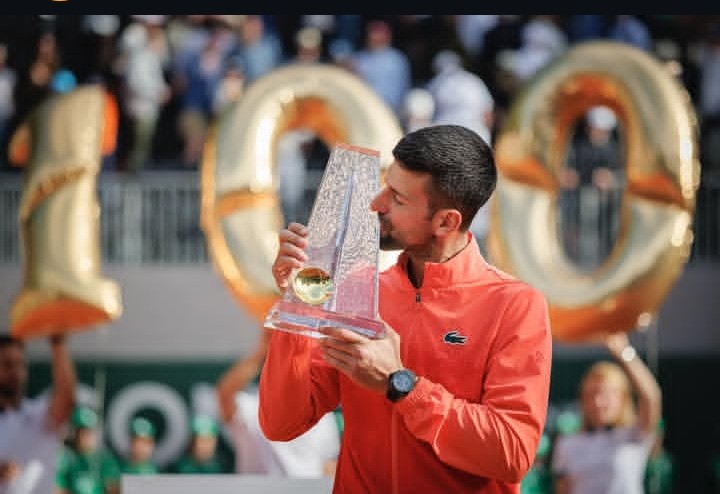In a gripping and emotional confession, Novak Djokovic — one of the greatest tennis players the world has ever seen — has revealed a stunning truth behind his rise to global stardom. While fans see the glitz, the trophies, and the multimillion-dollar endorsements, few knew the harrowing sacrifice that laid the foundation for it all: his father once borrowed money from the mafia just to keep his tennis dream alive.
Speaking candidly in a recent interview, Djokovic didn’t hold back as he pulled back the curtain on his traumatic beginnings in war-torn Serbia. “It’s something I never forget,” he began. “My father borrowed money from people you wouldn’t want to be indebted to — the mafia. All so I could travel to tournaments. That’s how much he believed in me.”
Born in 1987, Djokovic grew up in Belgrade during one of the darkest periods in the region’s history. Yugoslavia was falling apart, war was rampant, and sanctions crippled the economy. Bombs echoed in the streets, electricity was unreliable, and hope was in short supply. But amid this chaos, a little boy held a tennis racket and dreamed of Wimbledon.
With local courts reduced to rubble and basic necessities scarce, Djokovic’s parents made unimaginable sacrifices. His mother worked tirelessly to keep the family stable, while his father hustled day and night to find any opportunity that might fund their son’s budding career. But when legitimate sources dried up, desperation pushed him to a dangerous line.
“He did it for me,” Djokovic said. “He put himself at risk so I could compete. Looking back, it was insane. But I wouldn’t be here without that kind of sacrifice.”
The decision to borrow from the mafia wasn’t romanticized — it was raw survival. Djokovic explains that there were times his family had no idea how they would pay the money back. “He just told me to focus on tennis. He carried the fear, the stress. I was too young to understand, but now, as a father myself, I do.”
Despite these staggering odds, Djokovic’s talent was undeniable. He broke into international tournaments, often with borrowed shoes and outdated equipment. What he lacked in resources, he made up for in sheer will. Behind every victory was a family drowning in sacrifice.
Today, Djokovic is a 24-time Grand Slam champion with legions of fans across the globe. He is known not just for his game, but for his resilience, fire, and emotional depth on court. That same fire, he says, was lit in the shadows of bombs, blackouts, and mafia debts.
“It wasn’t about winning for me — it was about honoring what my family gave up. Every point, every match, is a tribute to their courage.”
In a world obsessed with success stories, Djokovic’s truth is a powerful reminder that greatness often emerges from the most unlikely and painful places. His legacy is not just trophies — it’s the unbreakable bond of family, the price of belief, and a father’s dangerous gamble that changed everything.
